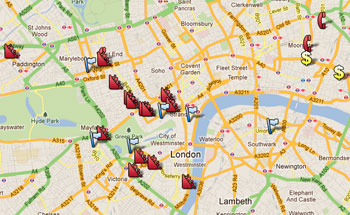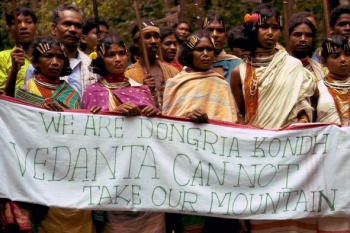Mining and Metals
Welcome to the Mining and Metals portal on Powerbase |
|---|
 To take a tour around the various mining companies and related agencies based in London, visit our London Mining Map. This portal reports and exposes the spin and lobbying by the metals and mining industry. In particular it investigates the UK's complicity in the activities of companies registered on the London Stock Exchange and the London Metal Exchange, epicenters of mining investments and metal price fixing worldwide. We reveal their links to the UK government, banking sector, think tanks, NGOs and arms industry. We also document the effects of mining activities on communities around the world, and expose attempts to generate 'greenwashing' PR and CSR initiatives. This portal is part of Powerbase—your guide to networks of power, lobbying and deceptive PR. Powerbase has a policy of strict referencing and is overseen by a Managing editor, a Sysop and several associate Portal editors. Why mining and metals? British-registered Indian aluminium company Vedanta has been exposed for human rights and environmental violations in its quest for 73 million tonnes of bauxite from the tribal mountain homeland of the Dongria Kondh Metals are all around us – from your can of lemonade, to your bike, car or plane, to your laptop, buildings and pots and pans. But we rarely think about where these materials come from and what impact they have on the planet and people. Mining and metals companies, with the support of their trade associations, think tanks, corporate social responsibility programmes and PR agencies, try to paint their products as clean and green. Yet these are among the most polluting and energy intensive industrial processes in the world, often linked to the displacement of indigenous peoples, poor working conditions, conflict, human rights abuses, pollution, climate change and militarisation. Around 30 per cent of aluminium, for example, is used by the arms or 'defence' industry, making it an important 'strategic metal' for governments. [1] |
|
|
| ||||||||
References
|
